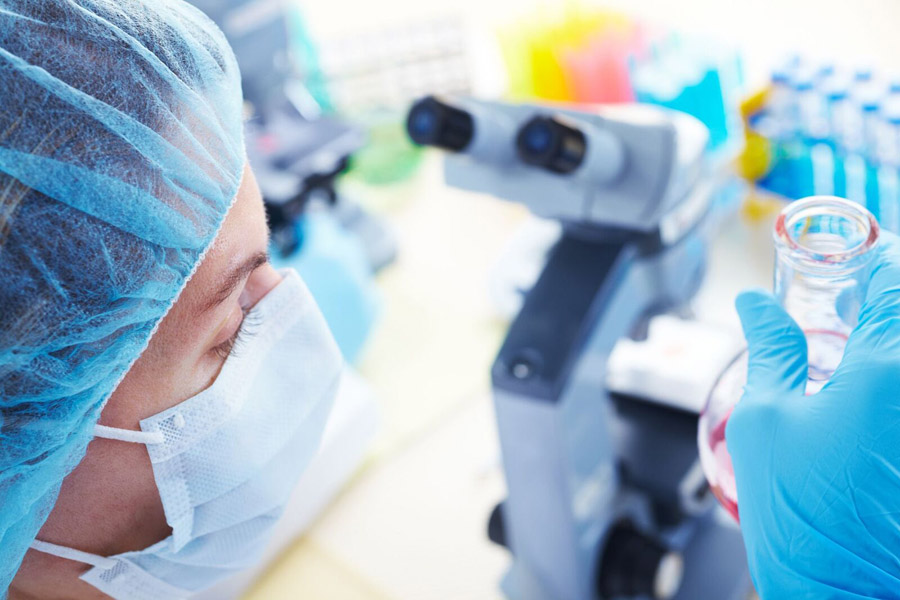|
The UFRO Laboratory of Bioanalysis and Molecular Diagnosis and the Laboratory of Molecular Morphology and Cell Culture have been authorized by the Chilean Ministry of Health to support the regional health services in the diagnosis of COVID-19. |
The Araucanía region and especially the city of Temuco are among the territories in Chile with the highest incidence of COVID-19 cases at the moment. It is a pandemic that has not yet reached its peak in Chile and which is challenging even the most powerful countries in the world. The timely diagnosis seems to be a determining factor in the fight against this pandemic. In this context, the Universidad de La Frontera (UFRO) has made its scientific capabilities available through two laboratories that were authorized by the Ministry of Health (MINSAL) on Wednesday, April 1, to join the national network of diagnostic test facilities that consists of 13 locations at the moment. This initiative is coordinated by the Ministry of Health and Dr. Olga Barbosa, the Regional Secretary of the Ministry of Science of the Southern Macro-zone in Chile. “Our laboratories have the highest quality standards. Making them available to the region and the country to face this health crisis is part of our commitment with the region; it is our responsibility as a state and public university,” said the Rector of the Universidad de La Frontera, Dr. Eduardo Hebel Weiss. The Vice-rector for Research and Graduate Studies at UFRO, Dr. Renato Hunter Alarcón, explained that the laboratories will be operative this week to begin analyzing the tests that arrive from the Hernán Henríquez Aravena Hospital (HHHA) and the centers associated with the Southern Araucanía Health Service (SSAS). Therefore, they will work in direct coordination with the needs of the health centers. “At the moment we are refining the test protocols and validating the methodologies. We are pleased to make our scientific, infrastructure and human resource capacities available to the region, to contribute to the well-being of everyone during one of the most critical moments worldwide,” he added. The Laboratory of Bioanalysis and Molecular Diagnosis and the Laboratory of Molecular Morphology and Cell Culture have the technical equipment to contribute to the analyses, but they also have the experience and expertise of their researchers, since they belong to the centers of excellence of the Faculty of Medicine of UFRO, which bring scientists in different fields together. The first laboratory belongs to the Center of Excellence in Translational Medicine and the second one to the Center of Excellence in Morphological and Surgical Studies. It should be noted that the diagnosis of COVID-19 is performed using the real time RT-qPCR technique. According to Dr. Álvaro Cerda, head of the Laboratory of Bioanalysis and Molecular Diagnosis, “this is an RNA virus and in order to diagnose it, it is necessary to convert that RNA into DNA. This is done through a process of reverse transcription (RT) which detects the amplification of genetic material in real time”. But the researcher mainly emphasizes the collaboration and communication between scientists who are currently working on one of the world' s biggest challenges. “We have put our soul into this. This is not about producing a paper, we will still have time for that, today is about saving lives. Many researchers, professors, professionals and doctoral students have put themselves at the service of this cause,” Dr. Cerda pointed out. For the same reason, Dr. Mariela Muñoz, who is in charge of the UFRO Laboratory of Molecular Morphology and Cell Culture, believes that “in this contingency it is a duty for state universities to put themselves at the service of regional needs”. With regard to the laboratory she coordinates, equipment calibration processes are being carried out and the necessary protection measures are being adapted in order to be able to work with these samples.
Written by: Karimme Riadi Millas |





